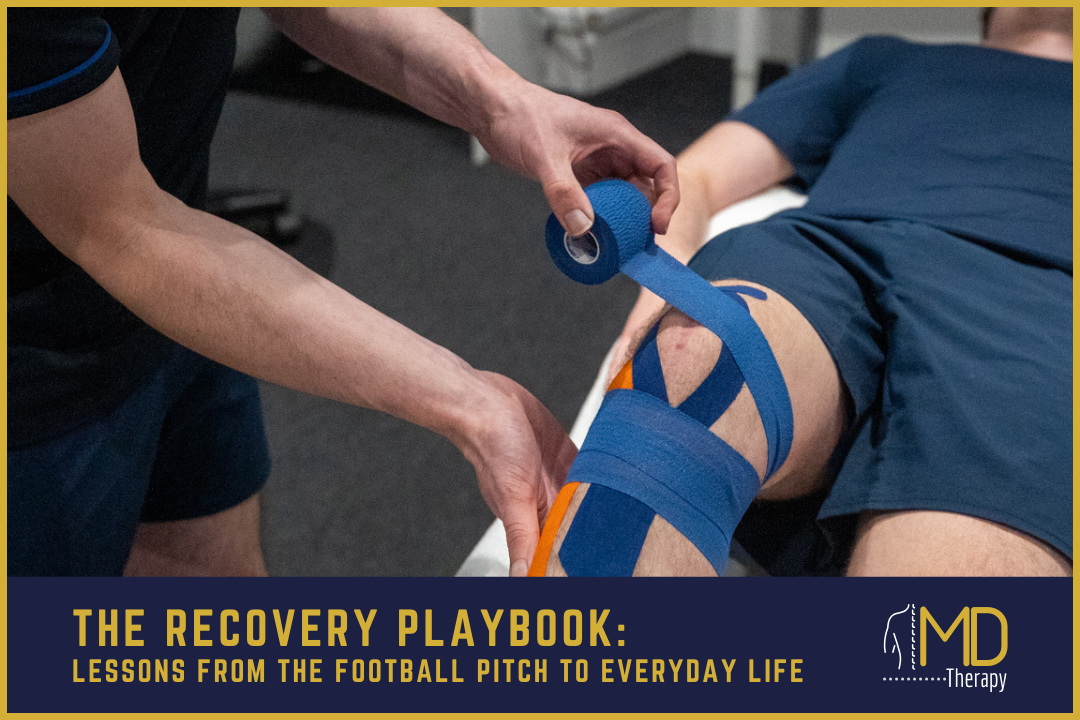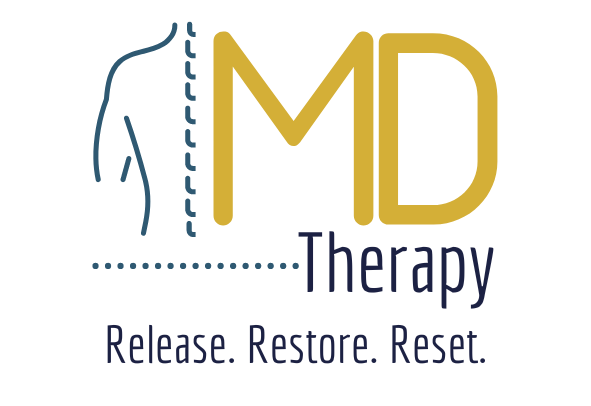Lessons from the Football Pitch to Everyday Life
At MD Therapy, we treat more than just injuries — we support people through their recovery journeys, physically and mentally. Whether you’re a footballer returning from an ACL tear or a desk worker managing chronic knee pain, our holistic, science-backed approach is designed to restore strength, mobility and confidence.
Drawing on over 21 years of experience in the health, fitness, and therapy world, Marc and the growing team at MD Therapy bring together a comprehensive blend of physical therapy, exercise rehabilitation, injury prevention, nutrition and wellness to support recovery at every level.
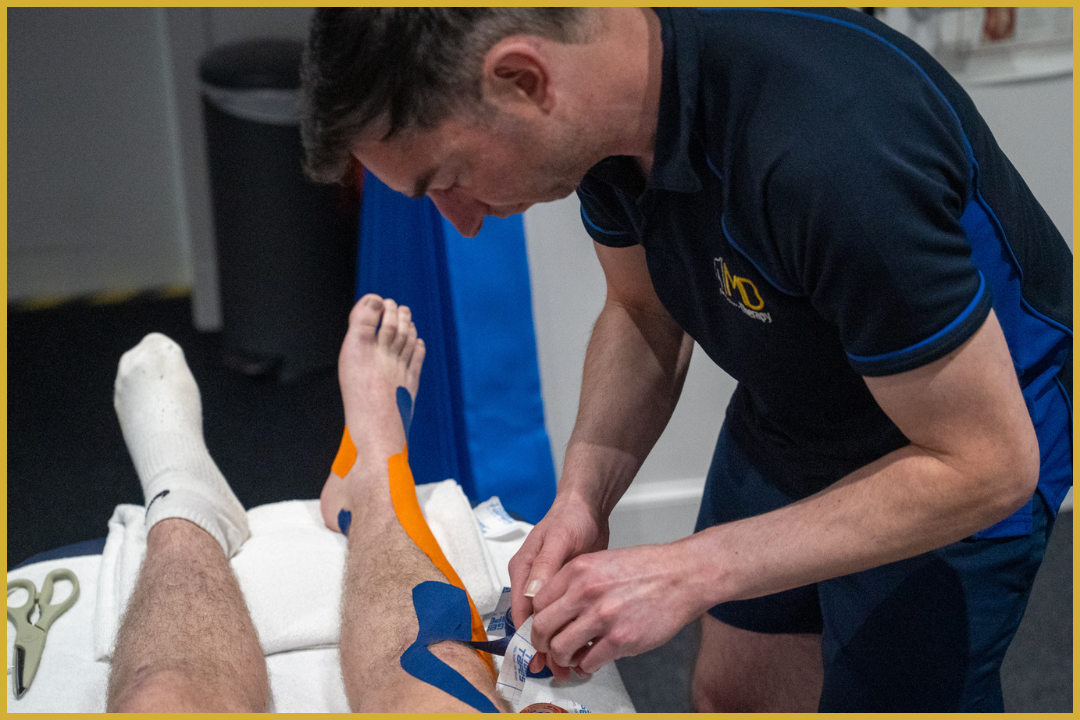
Knee Injuries: Managing ACL & Meniscus Recovery
Knee pain is one of the most common complaints we see, and it affects all levels of physical activity — from competitive athletes to those who simply enjoy a weekend run or gym session. Two of the most serious and disruptive knee issues are meniscus tears and ACL (anterior cruciate ligament) injuries. These are common in rugby, football, and other high-impact or pivot-heavy sports.
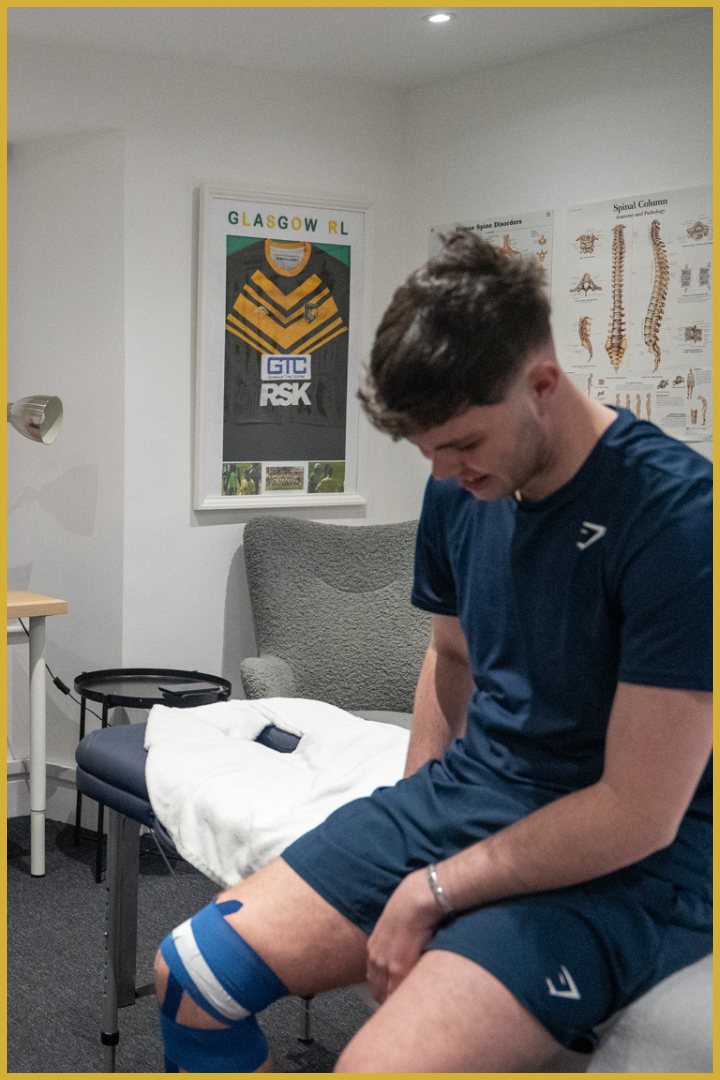
ACL Injury Recovery
ACL injuries, particularly full ruptures, are a longer-term rehab journey. Whether managed surgically or non-surgically, recovery takes time, commitment, and consistent therapist support.
An ACL rehab programme typically spans 6–9 months and may include:
- Post-op Phase: Managing swelling, regaining passive knee extension, reducing pain, and preventing quad atrophy.
- Mid-Rehab Phase: Rebuilding strength, especially in the hamstrings, glutes and core, while introducing proprioceptive (balance) drills and functional training.
- Late Rehab Phase: Plyometrics, agility drills, and confidence-based return-to-sport testing.
- Psychological Readiness: Regular mindset check-ins, addressing fear of movement or performance anxiety.
At MD Therapy, we often integrate massage therapy, compression therapy, and manual release for surrounding tissues, alongside ongoing strength programming and detailed mobility assessments. Clients are typically seen fortnightly, with treatment evolving based on clinical milestones and personal goals.
Meniscus Tear Recovery
Meniscus injuries vary in severity. Some can be managed conservatively (without surgery), while others may require surgical intervention followed by structured rehabilitation.
A typical non-surgical meniscus rehab with MD Therapy might follow this progression:
- Phase 1: Pain management, swelling reduction, and restoring basic range of motion using manual therapy, infrared therapy, and low-load mobility exercises.
- Phase 2: Introducing progressive loading to build strength around the knee, focusing on hamstrings, quads and glutes.
- Phase 3: Reintegrating balance, coordination and light sport-specific movements.
- Phase 4: Conditioning and return-to-play, where we refine movement patterns and check for any lingering asymmetries.
This process can span 6–12 weeks for mild to moderate tears, or up to 16–20 weeks for more complex cases. We often see clients every 1–2 weeks, adjusting their programme based on pain, performance, and mobility.
More Than Just Injury Care
One of the things that sets our clinic apart is the long-term relationships we build with clients. We don’t just support you through injury — we help you stay on top of your recovery long after rehab ends.
Many of our clients continue with monthly Full Body MOTs, mobility sessions, or recovery therapy to stay ahead of potential injuries and maintain performance. Others shift their focus from recovery to performance coaching or fitness goals — and we’re here to guide that evolution.
We often say: we’re not a “quick fix” clinic — we’re a recovery partner. And that mindset is what brings clients back again and again — not just for pain relief, but for continued health, movement, and momentum.
What to Expect at MD Therapy
From the first consultation, you can expect:
- A full-body assessment, not just a symptom check
- Open conversation about your lifestyle, training and recovery goals
- A tailored treatment plan that includes hands-on therapy, rehab exercise programming, and ongoing review
- Accountability and support every step of the way — whether your rehab lasts 4 weeks or 9 months
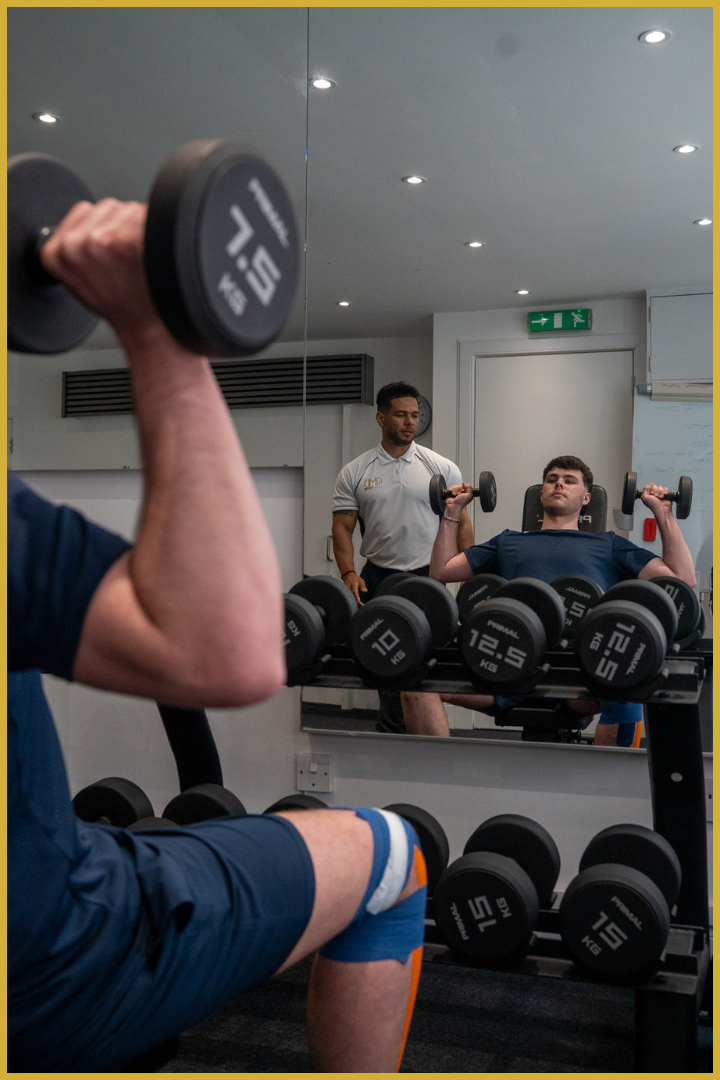
Why Mental Recovery Matters Too
Injuries don’t just affect the body — they can have a major psychological impact, especially for those who train regularly or rely on their physical health for performance or confidence. One of the biggest things we see in clinic is the mental strain that comes with recovery: frustration at slow progress, fear of re-injury, or even identity loss for athletes sidelined by injury.
That’s why every consultation at MD Therapy takes the full person into account. We ask how you’re sleeping, how the injury is affecting your motivation, your energy, and your outlook. And we create space for open, supportive conversation throughout treatment. The therapist-client relationship is key — it’s what allows us to build trust and keep clients motivated over weeks or months of rehab.
Who We Work With
Our recovery methods apply far beyond the football pitch. We’ve helped:
- Rugby players return after meniscus surgery
- Marathon runners recover from IT band and knee pain
- Weightlifters regain full squat depth after ACL rehab
- Office workers move pain-free after years of restricted mobility
If you move, we can help you move better — pain-free and with purpose.
Ready to Rebuild Stronger?
Book a Sports Therapy Assessment, a Full Body MOT, or an Advanced Recovery Package today — and take the first step towards long-term strength and resilience.
We’re here when you need us.

